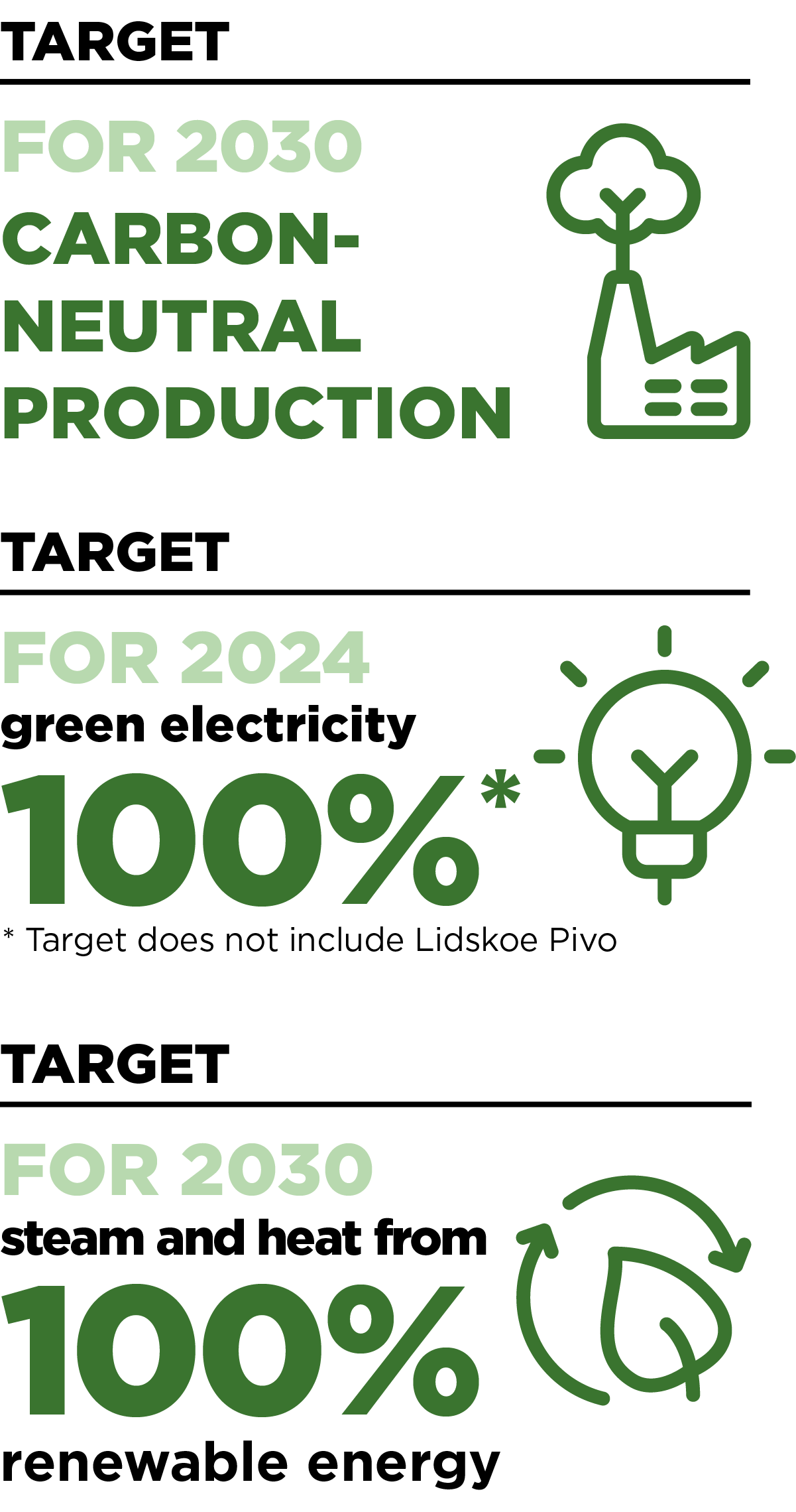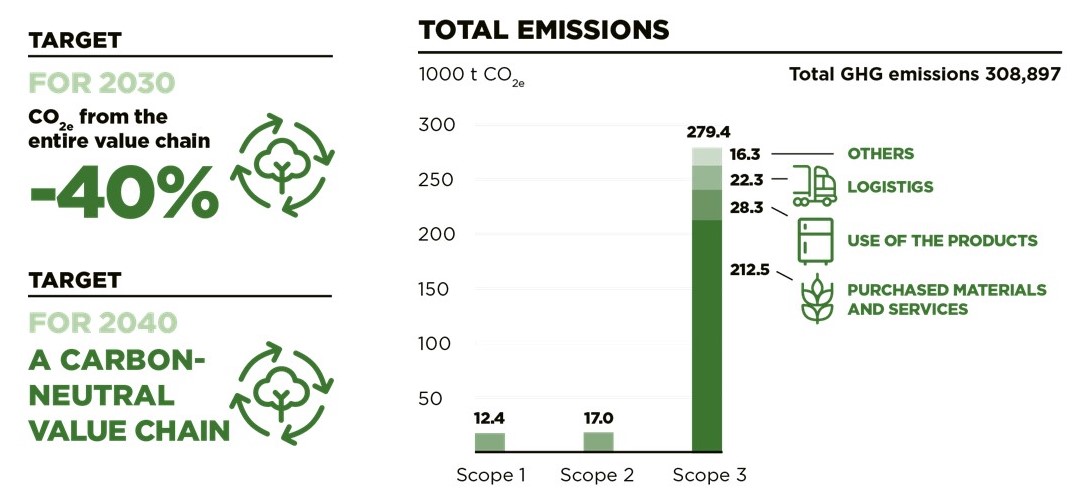Reducing our carbon footprint
 Olvi Group continuously takes measures to reduce its carbon footprint. Adapting to and mitigating climate change is important both in terms of securing the future of our business operations and ensuring their profitability. Climate change has a direct impact on the Group’s business operations, given that global warming reflects on agricultural production, among other things.
Olvi Group continuously takes measures to reduce its carbon footprint. Adapting to and mitigating climate change is important both in terms of securing the future of our business operations and ensuring their profitability. Climate change has a direct impact on the Group’s business operations, given that global warming reflects on agricultural production, among other things.
Monitoring of emissions
We are constantly developing our climate emissions calculation in order to be able to support the emission reduction work and ensure that the calculation is up-to-date. In 2023, we particularly refined the emissions calculation of transportation and acquisitions. We provide more detailed reporting on the emissions through CDP climate reporting, in which we achieved the grade
B in 2023, while the average for our industry was B-.
We want to contribute to the reduction of emissions in accordance with the Paris Agreement, with the objective of holding the increase in the average global temperature at 1.5°C. As part of this, our goal is for all of our breweries to be carbon neutral by 2030. In addition, our goal is a carbon-neutral value chain, and we are also setting a target for reducing agricultural emissions. The preliminary target year set for the value chain is 2040.
Towards carbon neutral value chain
Already 93% of Olvi Group’s carbon dioxide emissions derive from the value chain. A significant portion, 81%, of the value chain’s emissions in 2022 were emissions generated by purchased materials and services. The next most significant sources of emissions are outbound and inbound transport. The treatment of used consumer packages, such as cans and bottles, as well as the cooling of products in sales points also generates emissions.
Development done in cooperation with value-chain partners is the best way for us to reduce the emissions of purchased materials. Almost all of our main partners have set science-based climate targets. Increasing the use of recycled materials is an important part of emission reductions, as is increasing resource efficiency and material surveys.
Emissions from own production
The direct greenhouse gas emissions of our own operations arise mainly from the production of heat, steam and electricity used in production plants. We have reduced market-based energy emissions by 52% since 2015, particularly through renewable energy solutions in electricity and the production of heat and steam.
In 2023, parent company Olvi became the first Group company to achieve carbon neutrality.
